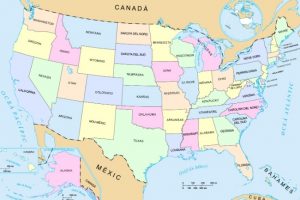 Online gambling has evolved into a multi-billion dollar industry, which attracts the attention of a great number of people. Players do not need to leave the comfort of their homes in order to enjoy their gambling hobby, as they can reach a whole assortment of casino games at a click of the mouse. With the advent of online gambling, more and more players around the world have started to ask themselves one important question – if online gambling is legal in their jurisdiction.
Online gambling has evolved into a multi-billion dollar industry, which attracts the attention of a great number of people. Players do not need to leave the comfort of their homes in order to enjoy their gambling hobby, as they can reach a whole assortment of casino games at a click of the mouse. With the advent of online gambling, more and more players around the world have started to ask themselves one important question – if online gambling is legal in their jurisdiction.
Similar to any other form of gambling, online gambling has various social and economic effects. While many naysayers emphasize on the idea that online gambling foster individual gambling addictions and social ills, it should be noted that this form of gambling brings broad economic benefits with it.
Gambling has always been a fairly popular pastime in America. Many U.S. residents are confused over the legality of online gambling in the United States and that has its reason. Some U.S. states still have their old gambling regulations, while other states have started to respond to the latest trends in the industry and make the most of it.
Furthermore, the online gambling industry is subdivided into 3 main branches, including online sports betting, poker and casinos. Each of them is governed by different federal laws. The things get even more complicated as some states are pushing to regulate online gambling and its form, while others are trying to prohibit the practice. The lines below aim at providing more detail-oriented information on the matter.
The Interstate Wire Act
 As aforementioned, there are 3 federal laws in America, which govern the different forms of the online gambling industry. The Interstate Wire Act is passed as far back as 1961 and it prohibits placing bets by use of “a wire communication facility”. The law has been, most likely, issued prior to the invention and commercialization of the Internet, but the Department of Justice has deemed that it applies to online gambling. Even though the Interstate Wire has been enacted more than 55 years ago, it still has a great impact on the online gambling industry.
As aforementioned, there are 3 federal laws in America, which govern the different forms of the online gambling industry. The Interstate Wire Act is passed as far back as 1961 and it prohibits placing bets by use of “a wire communication facility”. The law has been, most likely, issued prior to the invention and commercialization of the Internet, but the Department of Justice has deemed that it applies to online gambling. Even though the Interstate Wire has been enacted more than 55 years ago, it still has a great impact on the online gambling industry.
Many people might be surprised to know that the Interstate Wire Act aimed at weeding out illicit activities as there were organized crime families at that time, which offered sports betting phone wagers. The wrongdoers were in a constant contact with bookmakers in Las Vegas, as Nevada was the only American state, in which a player can legally place a bet on a sports event.
Even though the law achieved its final goal to combat illicit practices, the legislative piece efficiently prevented U.S. citizens from online gambling activities. At present, the biggest problem seems to be the confusing text of the law, which does not outline cut and dry regulations. According to the latest updates from 2011, the law prohibits only online sports betting only, while it remains liberal to online poker and online casinos.
The Professional & Amateur Sports Protection Act (PASPA)
 In addition to the Wire Act, the officials decided to issue to so-called Professional & Amateur Sports Protection Act in 1992. PASPA is very similar to the Interstate Wire Act as it prohibits sports betting on amateur or professional athletics. The only difference between the two legislative pieces is that PASPA outlaws sports betting in all of its forms.
In addition to the Wire Act, the officials decided to issue to so-called Professional & Amateur Sports Protection Act in 1992. PASPA is very similar to the Interstate Wire Act as it prohibits sports betting on amateur or professional athletics. The only difference between the two legislative pieces is that PASPA outlaws sports betting in all of its forms.
The law has become increasingly popular under the name “the Bradley Act” as Senator Bill Bradley (a former professional basketball player) expressed his concerns regarding the influence of gambling on sports. The legislative piece came into effect after a massive federal investigation into sports gambling raised concerns regarding fixed professional and college games. PASPA prohibited all the American states from allowing bets on amateur or professional athletics.
The law goes even further to bar the provision of daily fantasy sports (DFS), the results of which are dependent on the individual performances of athletes. Hence, states which regulated DFS within their borders, including Iowa and Maryland, are considered to violate PASPA. Here it is important to mention that Oregon, Delaware, Montana, and Nevada are outside the reach of PASPA as the states had existing sports betting markets prior to the enactment of the law. Opponents of the law explain that PASPA violates the right of each state to autonomously take decisions.
The Unlawful Internet Gambling Enforcement Act (UIGEA)
 The UIGEA is the most recently passed law of the aforementioned. It entered the country’s legal framework in 2006 as part of an extensive national defense bill called the SAFE Ports Act. The lawmakers decided to tack the UIGEA into the SAFE Ports Act as they were sure that the latter is to pass. Consequently, many of the other lawmakers did not have the time to read the whole legislative piece, which passed unnoticed.
The UIGEA is the most recently passed law of the aforementioned. It entered the country’s legal framework in 2006 as part of an extensive national defense bill called the SAFE Ports Act. The lawmakers decided to tack the UIGEA into the SAFE Ports Act as they were sure that the latter is to pass. Consequently, many of the other lawmakers did not have the time to read the whole legislative piece, which passed unnoticed.
In its nature, the UIGEA does not outlaw online gambling, but rather it made it illegal for any financial institution to process gambling payments. This triggered a massive exodus of some payment processors and e-wallets from the American gambling market. However, the UIGEA lacks some important information regarding different gambling markets and it can be said that it failed to stop American players to join online gambling practices.
State Gambling Laws
 To make the things even more complicated, the legality of online gambling is also dependent on the individual legal framework of each state. The courts decided that every state has the right to decide whether or not it will allow online gambling sites within its borders. To prevent out-of-state customers from gambling online, online operators are required to deploy geolocation systems. The system can detect the player’s location and block unauthorized access. It is hard to provide a detailed-information regarding state gambling laws, as there are 50 states, two territories, and the District of Columbia.
To make the things even more complicated, the legality of online gambling is also dependent on the individual legal framework of each state. The courts decided that every state has the right to decide whether or not it will allow online gambling sites within its borders. To prevent out-of-state customers from gambling online, online operators are required to deploy geolocation systems. The system can detect the player’s location and block unauthorized access. It is hard to provide a detailed-information regarding state gambling laws, as there are 50 states, two territories, and the District of Columbia.
A Landscape of the Online Gambling
 Currently, there are 4 U.S. states where online gambling is legal and regulated. New Jersey is the first state to regulate its online gambling market, including online poker, casino, and slot games. Coming as no surprise, Nevada (the Mecca of the gambling world) became the second U.S. state to regulate the online gambling industry. In 2012, Delaware passed a bill to legalize online gambling. Mere weeks ago, Pennsylvania became the last state to join the pack, after Gov. Tom Wolf signed legislation authorizing a major expansion of online gambling.
Currently, there are 4 U.S. states where online gambling is legal and regulated. New Jersey is the first state to regulate its online gambling market, including online poker, casino, and slot games. Coming as no surprise, Nevada (the Mecca of the gambling world) became the second U.S. state to regulate the online gambling industry. In 2012, Delaware passed a bill to legalize online gambling. Mere weeks ago, Pennsylvania became the last state to join the pack, after Gov. Tom Wolf signed legislation authorizing a major expansion of online gambling.
More and more states have started to consider the regulation of online gambling. It is not a secret that the local governments are trying to bring an additional source of tax revenues to the coffers by legalizing gambling in all of its forms. But it seems that the plan to plug a budget gap without cutting any spending or increasing tax rates is working. There are a few more states, which are expected to regulate the online gambling industry in the near future.
California has already tried to pass a bill to regulate the online entertainment, but at present the initiative remains unsuccessful. Of course, California is not the only state, which considers such a move. Illinois is also in the process of legalizing online gambling within its borders. It is important to mention that in some states such as Ohio and Connecticut, online gambling is neither illegal nor legal, as the states lack precise laws regarding online gambling.
Legality of online gambling in America has always been a moot point. Many people are not really familiar with the gambling laws in their home state. The confusion is completely understandable, having in mind America’s complex legal system. Every state has the right to regulate or criminalize the online gambling industry within their borders. At the end, players do not need to expect a SWAT team smashing through their doors every time they are playing in an online casino, but the industry itself remains highly unregulated across America.

















